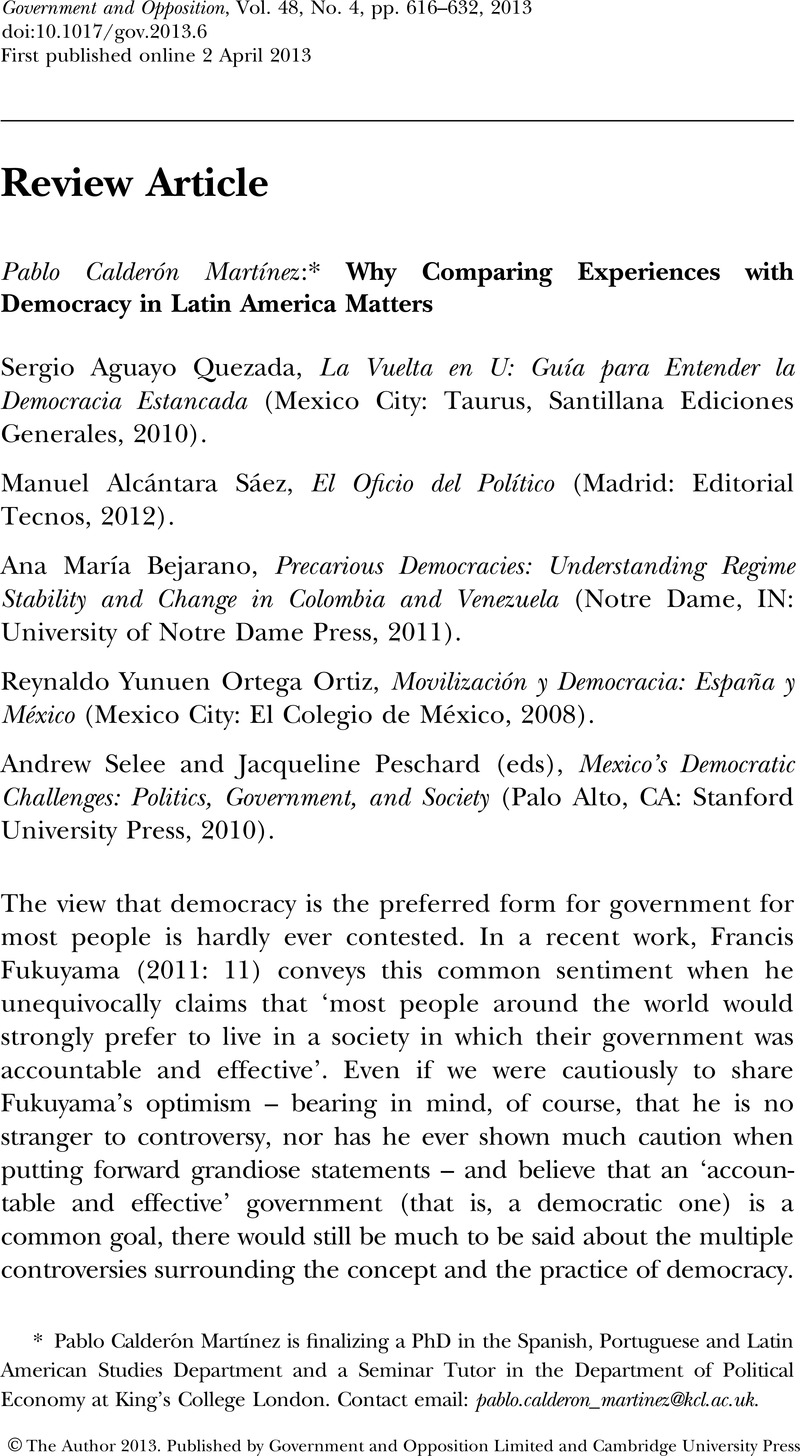No CrossRef data available.
Published online by Cambridge University Press: 02 April 2013

Pablo Calderón Martínez is finalizing a PhD in the Spanish, Portuguese and Latin American Studies Department and a Seminar Tutor in the Department of Political Economy at King's College London. Contact email: [email protected].